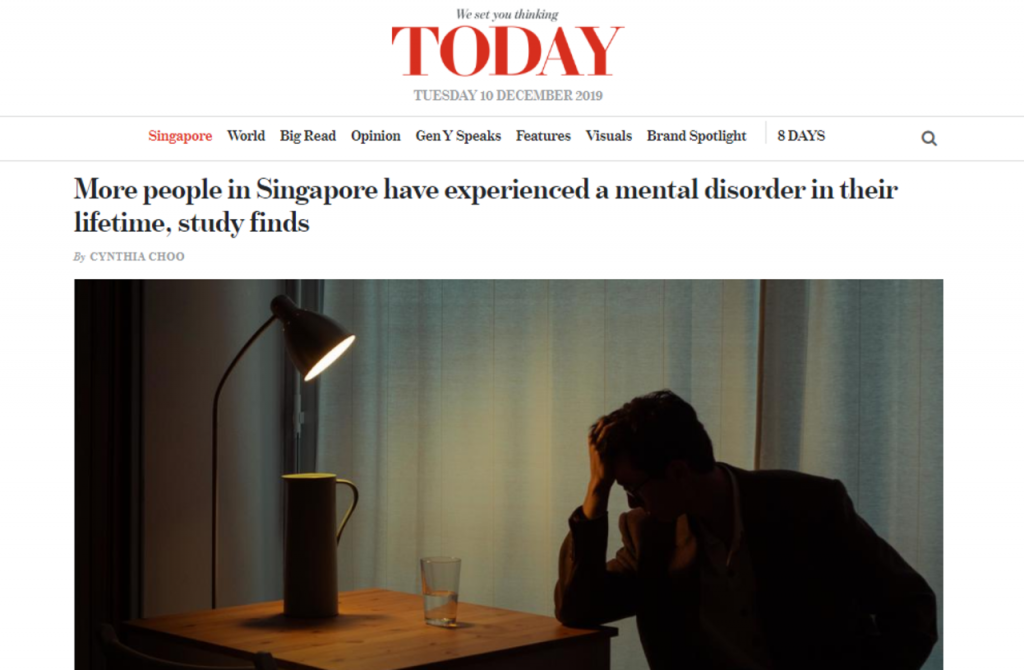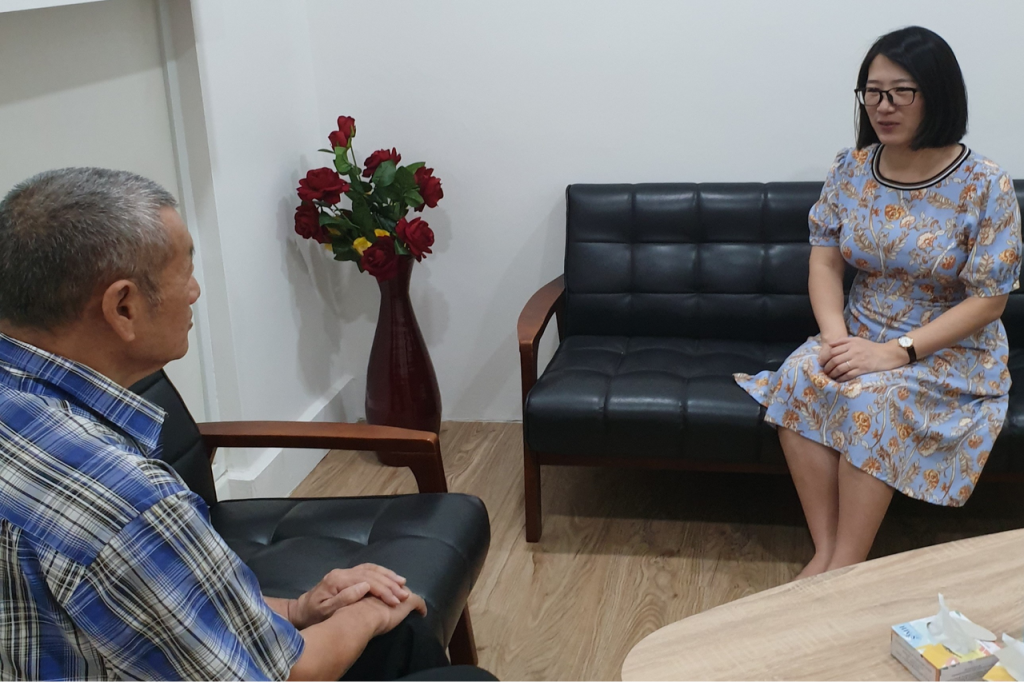Top image credit: Alex Ivashenko/Unsplash
But if you go the private route, it can also be eye-wateringly expensive. In general, the market rate for private counselling starts at around $150 for an hour-long session, and can go up to asmuch as $250.
Significantly, counselling is not a one-off expense, requiring repeated sessions over the medium to long term—anywhere from a few months to a few years—to yield results.
To see how all this adds up, let’s have a look at the numbers.
Most counsellors recommend that new clients see them more frequently to start with, around once a week. As such, assuming a year of regular sessions at $150 each, the math looks like this:
First month (one session per week): 4 x $150 = $600
Next 11 months (2 sessions per month): 11 x 2 x $150 = $3,300
Total: $3,900
Many insurance policies don’t cover mental health treatment, which means this has to be paid in cold, hard cash. For most, coughing up a few hundred dollars extra every month would pinch; for the bottom 20% of Singaporean households, with an average monthly income of S$2,235 (including government transfers like Workfare), this level of expenditure would be inconceivable.
So how do low-income Singaporeans in need of mental health support afford it?

Going private allows quicker, more regular sessions, but at several times the price. This leaves individuals in a bind: what do you do if you need more sustained and regular mental health support, but can’t afford to shell out for private treatment?
This is where the third sector comes in. Social service agencies (SSAs) provide a crucial safety net of mental health services for individuals who might otherwise fall through the cracks.
To get a better sense of the options available, I spoke with mental health professionals from three SSAs: Samaritans of Singapore (SOS), club HEAL, and the Singapore Association for Mental Health (SAMH).
All three provide a range of mental health support services, including counselling, helplines, and community engagement. SOS’ work focuses on crisis intervention and suicide prevention, while SAMH and club HEAL provide more long-term care for individuals who are more stable, and not at acute risk of self-harm.

As SSAs, all their services are provided for free or at nominal charges. SAMH provides various services, of which counselling is one, while SAMH Insight Centre’s Counselling Service operates on an entirely voluntary pay-what-you-wish scheme.
Although none of them were able to provide me with statistics on this, all felt that the cost of counselling could dissuade individuals from seeking help.
“I think [people being discouraged from seeking help for mental health issues due to the perception that it is expensive] is quite common,” said Voon Yen Sing, the Assistant Director(Clinical Services) at SAMH and a practising counsellor. “Sometimes when people call our helpline, they’ll ask about fees because they’re really quite concerned.”
“Often, they’re surprised when we tell them it’s by donation. They say ‘oh, I thought it was going to be very expensive’ … this is a perception many of them have. Interestingly, some clients will try and sound us out before they come—for example, they’ll ask what’s the typical amount people donate. In such cases, we let them know there’s really no pressure, and if they can’t donate because of their situation that’s fine.”
Annabelle (not her real name), 41, an SAMH service user, told me via email that she initially fretted over whether she would be able to afford counselling. Although she now has stable employment as a contract admin assistant, her work situation was more tenuous when she firstsought out SAMH’s services a couple years ago, and money was tight.
“I had heard that it could be very costly, and it would add stress to my situation if I needed to pay,” she said.
In this, SAMH’s pay- what-you-wish policy was a lifeline. Even now, having reaped the benefits of counselling herself, she’s not sure she could, or would, fork out market rate.

The last few years have seen a push to destigmatise mental health, such as NCSS’ Beyond the Label campaign (you’ve probably seen the posters for these at bus stops and MRT stations). Sustained and vocal advocacy has kept mental health in the headlines, and the taboo that once shrouded it is slowly but surely being eroded.
However, improved awareness about a topic is only one aspect of progress. For individuals living with mental health conditions, practical help—i.e. receiving treatment—makes all the difference to their day-to-day lives.
Too little, too late
As a counsellor from SOS explained to me, “While most may understand the importance of mental health, not many will prioritise taking care of it. Compared to physical illnesses, individuals are less likely to seek help early and promptly for their mental health, as they may fail to see how their conditions may worsen and affect their daily lives.”
“When treatment to poor mental health is put on a low priority, prolonging the treatment gap may worsen one’s condition and lead to psychosomatic symptoms that adversely affect daily functioning.”
This cycle is exacerbated for low-income individuals. It doesn’t take much imagination to understand why: when money is tight, you’re more likely to spend what you have on more obvious or immediate needs, like paying rent or putting food on the table.
Even physical ailments that cause acute pain, like a toothache, can be put off until your financial situation improves. For mental health, which is often misunderstood or under-valued as is, and for which the symptoms can be more subtle, it’s even easier to keep delaying treatment indefinitely—until which time things might reach breaking point.

The complexity of suicide, for example, requires skilled professional support to address sensitively and effectively. As the SOS counsellor explained to me, “Suicide is an inherently complex behavior, and it’s difficult to explain exactly how people facing a crisis perceive and interpret their daily lives.”
“Some common struggles cited by clients included suicide grief, issues with mental health, and relationship problems. However, it’s paramount to note that the factors responsible for an individual to turn to suicide are often multiple and combined. ”
Community-based approaches
Similarly, some SSAs have tailored their practices to the communities they work with. club HEAL, for example, has developed a particular strength in working with Muslim patients, although they see clients from all walks of life.
Heryani Jamaludin, the Senior Manager of club HEAL’s Community Intervention Team (COMIT), explains that the organisation has a number of Muslim counsellors. This helps them understand the cultural context in which their clients’ fears and anxieties are occurring, and how they link to their mental health struggles.
“Say a Malay auntie comes to me and says her things have gone missing—her scarf, slippers, pins—and she thinks a djinn has come to her house and stolen these things,” she says. “That’s when our counsellor, with the knowledge of the Islamic religion, can explain that no, it’s not a djinn, it’s that you have dementia.”
“Or if a young lady hears voices condemning her, telling her to do naughty things like shout bad words in public, and she thinks she might be possessed. This is quite common amongst some members of the Muslim community, the idea of being possessed … It’s got religious implications, like if you’re being possessed that means your faith is weak.”
“Our counsellor will be able to explain that this is schizophrenia, and reassure her that it has nothing to do with her faith.”
As anyone who’s tried going for therapy will know, finding a counsellor you ‘click’ with takes time and luck, but is crucial if sessions are to have any effect. For low-income clients who cannot afford to try out different private service providers before committing to one, having access to specially trained SSAs reduces the stress of this considerably.
As Hery put it, “People can relate to us, identify with us. We can give some context to what they’re going through.”

Those of us with the means to afford private counselling—however costly—at least have the luxury of choice. However, for low-income individuals with mental health conditions, day-to-day concerns like stable employment, managing relationships with relatives and loved ones, and just trying to eke out a living can all be existing sources of stress. Receiving treatment is therefore an essential gateway to a whole host of other improvements, and can make a critical difference to someone’s quality of life.
This said, none of my interviewees were able to comment on why private mental health care costs as much as it does.
Determining the price of any good or service is complicated, and mental health has a number of complex issues at play. For example, it’s safe to assume the rates account for the years of training which mental health professionals have to undergo to qualify, and the significant amount of behind-the-scenes work they have to do for each patient. If so, are they a fair and accurate reflection?
This also raises broader questions about how we value mental health, relative to other services that we regard as investments. For example, lawyers and accountants also charge hefty per-hour fees, but many of us would hesitate to shell out for counselling in a way we wouldn’t for legal advice.
All the same, one thing is clear: financial concerns are just as pertinent to service providers as they are to users. If SSAs are to keep serving the communities which need them most, it’s critical that they receive the funding they need to do this.
SOS, club HEAL, and SAMH receive funding from a range of sources, including Community Chest (the fund-raising and engagement arm of NCSS), religious organisations, and private donations. This financial support allows them to focus on bringing their services to as many people as possible while still keeping them complimentary.
Without it, their users would be deprived of much-needed support—and we, as a society, would be poorer off for this.
In FY2018, Community Chest disbursed $4.7 million to support 11 programmes that empower persons with mental health conditions. These programmes include integration support and day activity centres run by social service agencies like SOS, club HEAL and SAMH. To find out more about the impact of your donation, visit www.comchest.sg/addanewstory.
Contact SOS at 1800 221 4444.
Contact club HEAL at 6899 3463.
Contact SAMH at 1800 283 7019.
What’s your experience with accessing mental health support services? Let us know at community@ricemedia.co .







